How to soundproof a room from noisy neighbours – 9 expert-approved ways to protect your peace at home
Keep your home undisturbed with these pro tips from soundproofing experts and interior designers

Jenny McFarlane
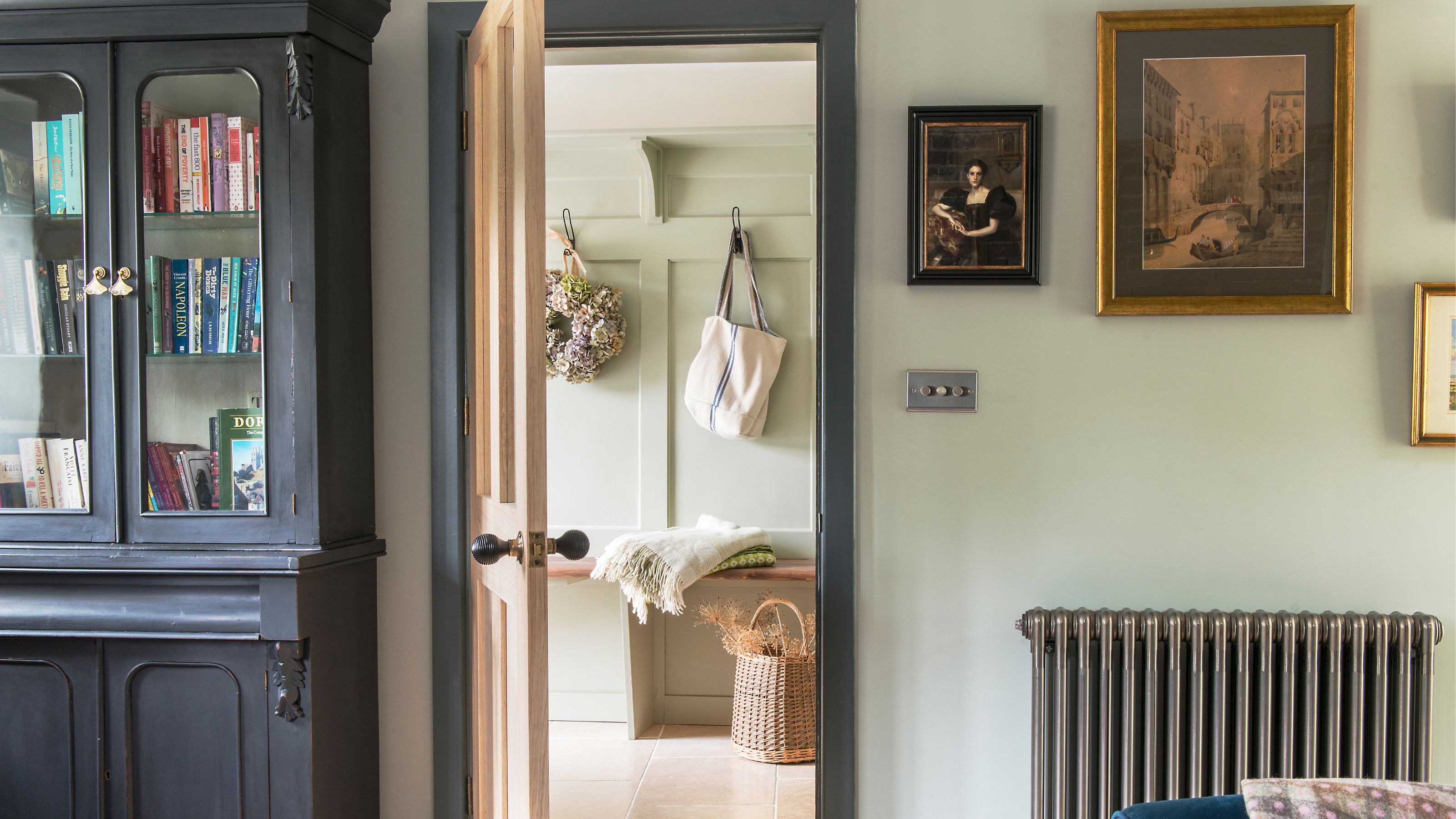
Sign up to our newsletter for style inspiration, real homes, project and garden advice and shopping know-how
You are now subscribed
Your newsletter sign-up was successful
Our home is our sanctuary, which means there's nothing that disturbs the peace more than other people's noise.
Whether it's the sounds of your neighbour's TV coming through the wall of your living room, the buzz of a lawnmower disrupting Sunday morning in your garden, or someone else's Zoom call penetrating your home office, other people's racket can feel like an intruder in your personal space.
Soundproofing your the rooms you use the most, like your bedroom or home office, can help reduce the volume and restore peace and quiet. And as our expert tips prove, it doesn't have to cost a fortune if you use these design hacks and retro-fitted solutions.
Why soundproofing from noisy neighbours is so important
Reducing noise in our homes won't just make for a quieter environment – it's better for our health, too. A recent report by the House of Lords Science and Technology Committee called noise a 'neglected pollutant' and linked environmental noise disturbance to poor sleep, annoyance, cardiovascular disease and diabetes.
'Noise negatively affects health, wellbeing, productivity and blights all life,' claims Gloria Elliott OBE, chief executive, Noise Abatement Society. 'It is estimated that the social cost of urban road noise in England alone is £7 billion to £10 billion annually. According to the UK Government, this places noise at a similar magnitude to road accidents and significantly greater than the impact on climate change.'
Follow these tips to soundproof the rooms in your home effectively and discover a quieter life.
1. Buying a house? Do a soundcheck first

When you're viewing a property, don't forget to listen out for issues, as well as looking for them.
Sign up to our newsletter for style inspiration, real homes, project and garden advice and shopping know-how
'Try to schedule a viewing for a time when you’d normally be at home – perhaps an evening or weekend,' advises Scott Clay, distribution manager at mortgage lender, Together. 'It’s the best way to know how well soundproofed the house is against potential noise nuisance.'
And ask the vendor straight out if there are neighbours with noisy lifestyles, children or pets that could pose problems.
'The vendor is legally obliged to inform you if they’re aware of any formal complaints, such as noise complaints, made about a neighbour – even if it wasn’t them who made the complaint.'
2. Add soft furnishings to smother sounds
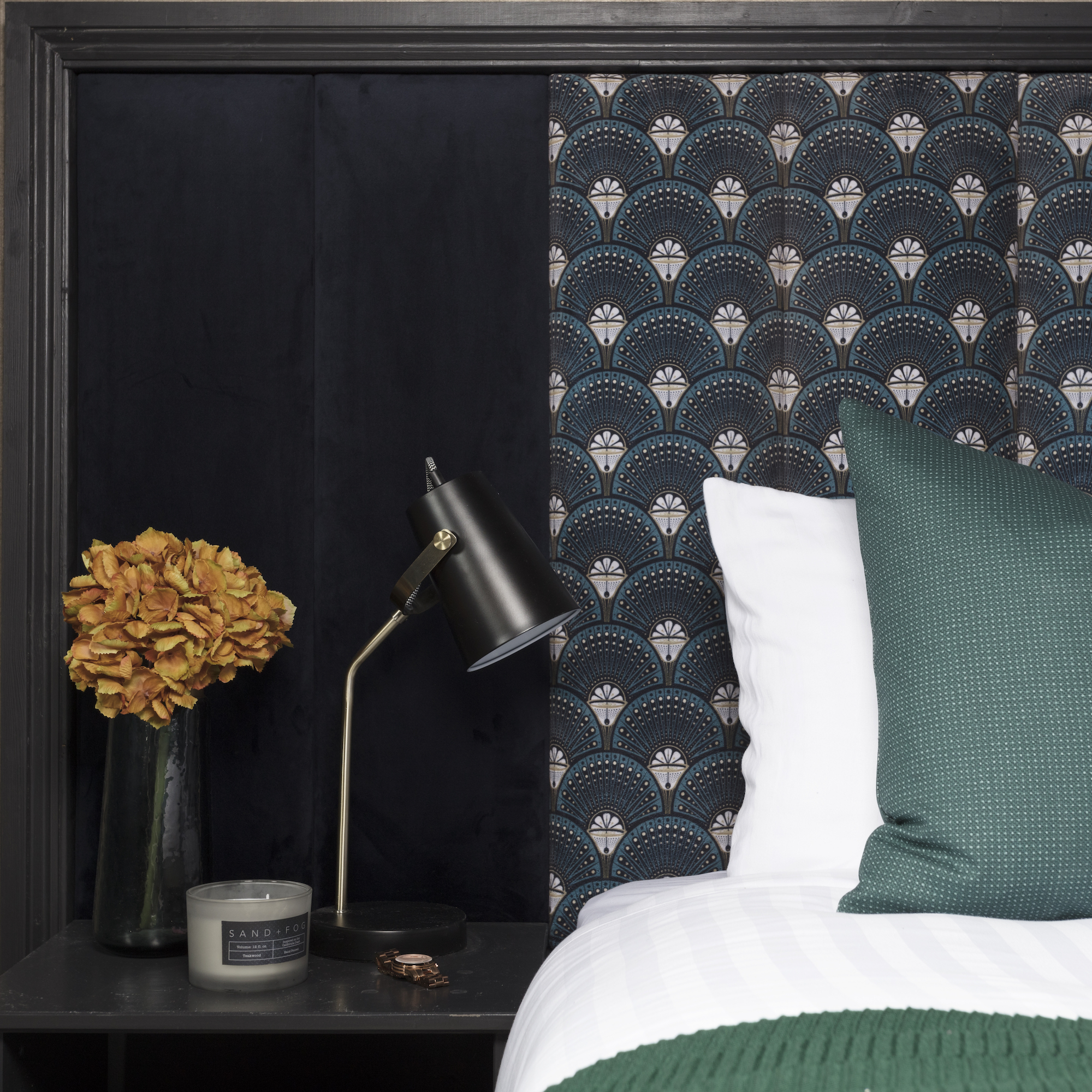
If just a little sound is a problem – perhaps you have one room that seems to reverberate more than the others in your home – then you may be able to minimise the effect with soft furnishings.
'Soundproofing may fill you with fear, thinking you need to go wild with some egg boxes and specialist insulation,' acknowledges interior designer Cathy Dean, founder of Studio Dean. 'But there are some simple tricks to help with soundproofing your home while keeping the interior design looking beautiful.'
'If you find sound reverberates in your home this is probably due to having a lot of hard finishes – stone worktops, wooden cabinetry, tiled floors, and so on,' continues Cathy. 'To minimise the reverb, you need to bring in fabrics as sound absorbers. Add a rug, some upholstery, cushions, curtains and throws and it will immediately help.'
In a bedroom, a cocooning upholstered headboard, thick curtains with a blackout or insulating layer, and a cosy rug on the floor will all help to reduce sounds at night to help you sleep, especially if you are a night owl who finds it hard to drop off.

Interior designer Cathy says she is obsessed with the way that calm and considered homes can change people’s everyday lives, and believes that if a space looks incredible but doesn’t make life easier, then it doesn’t work.

Louisa is an expert in tiles and decorative wall panels, with an in-depth knowledge of their materials and design potential. With years of experience in the industry, she is passionate about the latest interiors trends and advising homeowners on how they can incorporate emerging styles in their homes. She understands not only the aesthetic impact of these materials but also the technical aspects of their installation, durability, and maintenance.
3. Add large furniture to absorb sound

Okay, you don't necessarily want to pack your room with furniture, but the fact is, large and heavy items can help to soak up sound and reduce its effects in a space.
'When heavy items are placed within a space, they tend to absorb the sound, creating less noise,' explains Johnpaul Manning, MD of Insulation4Less. 'You can add layers of insulation by pushing bookshelves and wardrobes against walls that face the street.'
'Sound is made up of low-frequency waves, which tend to keep travelling until and they meet some form of opposition,' continues Johnpaul. 'Sound waves also have a tendency of bouncing off the surfaces that offer resistance, which creates some form of reverberation in the room. Tackle this by stopping the way sound moves around the room first.'
Fitted cupboards or bookshelves in alcoves can help absorb any sound coming through the wall from your neighbour's house next door, for example. Or you could use a solid trunk as an alternative coffee table in the centre of the room, rather than a table with legs, as the bulk can help to stop soundwaves travelling through your living space.
4. Put up panelling
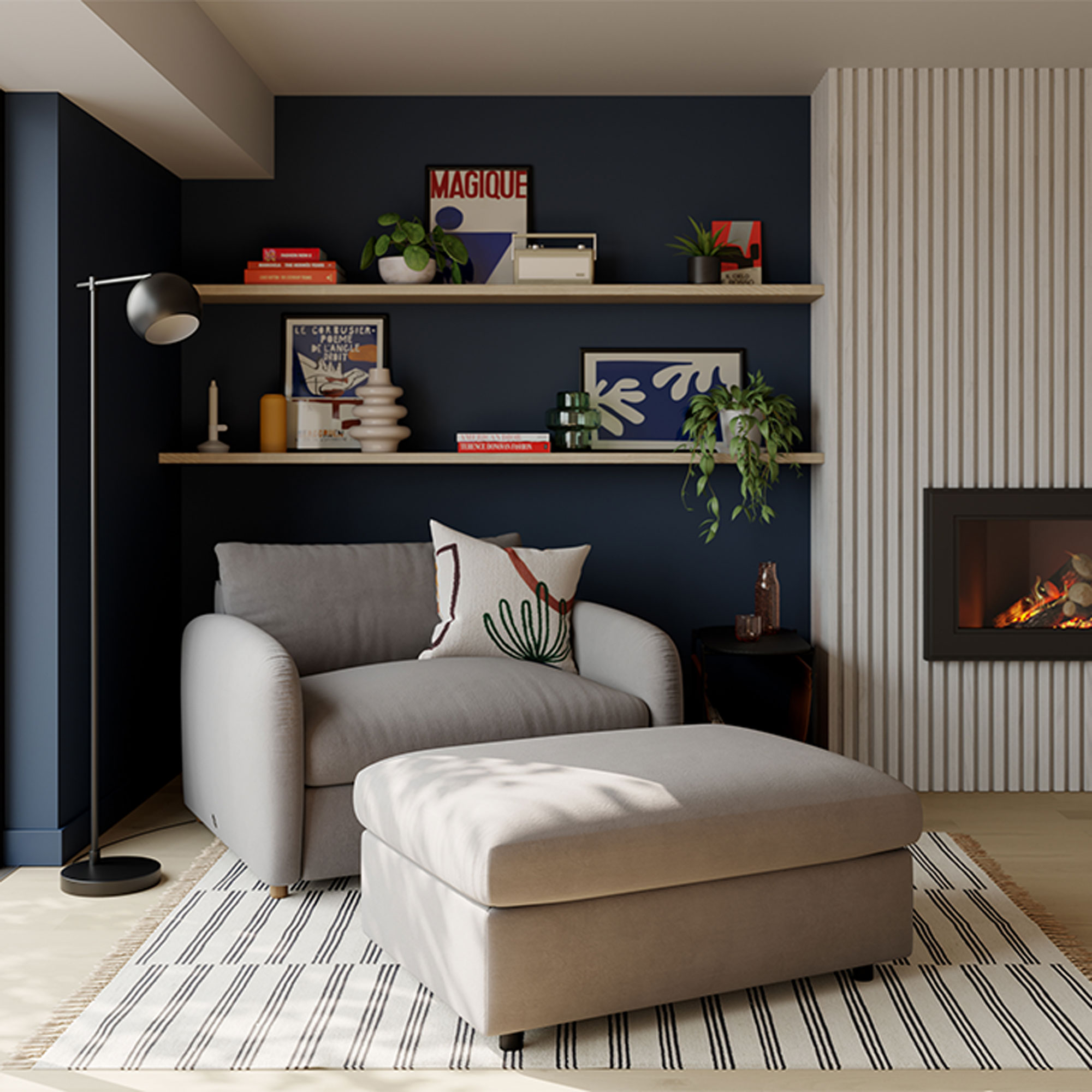
Transforming your walls with panelling will have sound benefits as well as aesthetic ones – but you'll need actual panels, rather than just battens to fake the look.
'Decorative Acoustic Wall Panels are one of the most effective and stylish ways to absorb sound. Modern designs, combine sound-absorbing properties with decorative finishes, think slatted wood-effect panels, fluted textures, or soft fabric-backed options,' explains Louisa Swannell, Head of Marketing at Walls and Floors.
'Panels made from medium density fibreboard (MDF) and backed with strong felt are great at absorbing mid to high-frequency sounds like conversation or TV noise. These can be installed over existing walls with minimal disruption, making them ideal for retrofitting in homes.'
'Creating textured surfaces on your walls and ceilings is another top tip for assisting with sound reverberations – good news for fans of panelling ideas, as this is the perfect way to texture a wall and still make sure it looks fantastic,' agrees interior designer Cathy Dean from Studio Dean.
You can buy soundproofing foam panels and use them to line your walls, then conceal them by fitting wood panelling over the top. Even better, says Johnpaul from Insulation4Less, is to use insulation in your room.
'The thicker the insulation or higher quality the material, the better will be the soundproofing,' he says, namechecking Rockwool and Knauf as brands he recommends.
To help you choose which product is right for you, Johnpaul says to look at its soundproof rating.
'Materials that are used for soundproofing rooms are graded for their effectiveness – known as STC, or Sound Transmission Class. The better and higher the rate, the higher the soundproofing capabilities of the material. Items such as insulation, curtains and windows all have an STC rating.'
5. Invest in solid doors
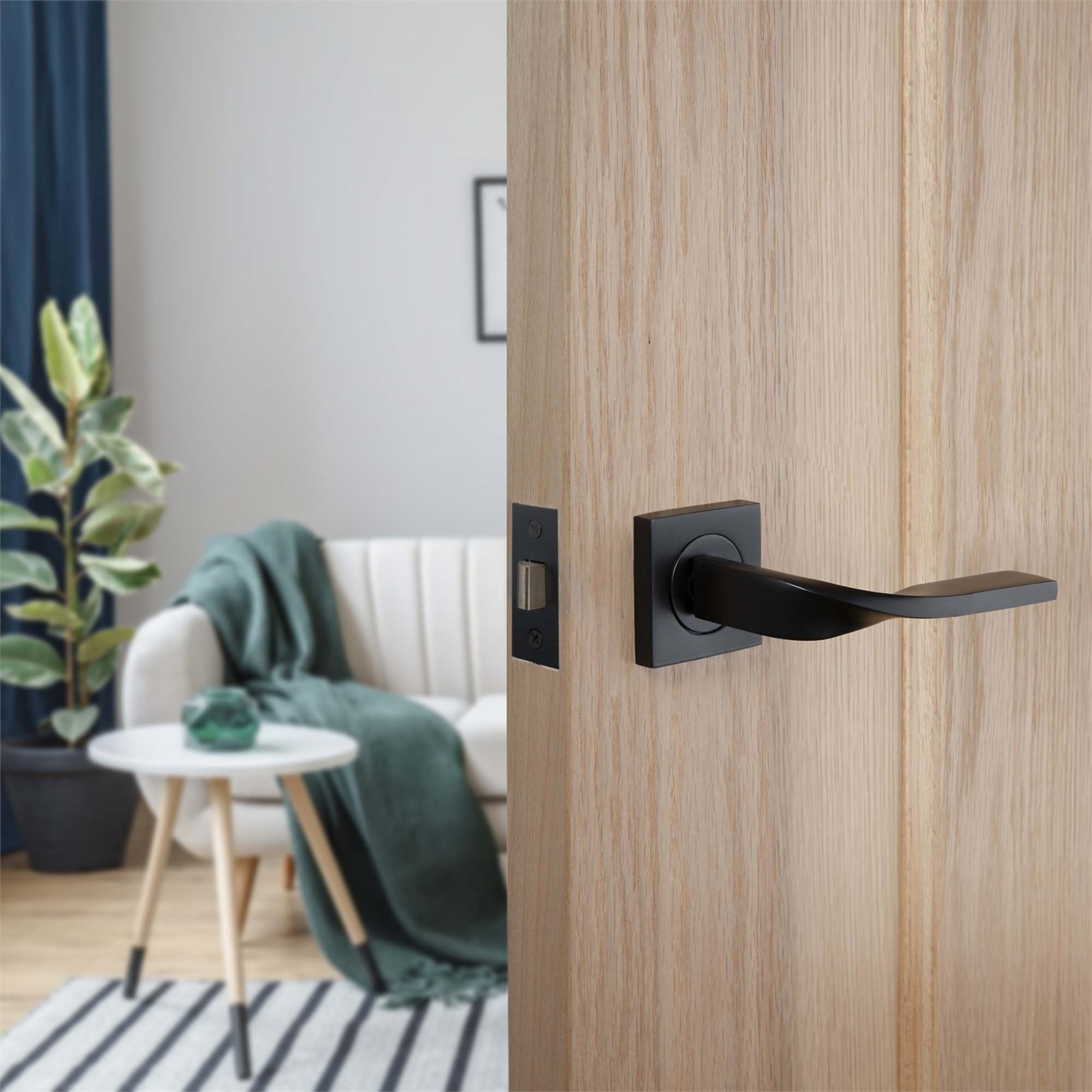
If noises from neighbouring gardens or the street are a problem, then a decent front door and internal doors can help to lock out sound. And bonus, they'll help to insulate your home, too!
'Well-fitting solid doors keep noise and heat transfer from room to room to a minimum,' confirms Adam Heath, sales manager for Online Door Store. 'They’ll also drastically reduce the amount of noise nuisance from your neighbours and the outside.'
Not sure what doors to buy? Adam's tip is to choose solid timber FD30 fire doors, which will dramatically reduce the amount of noise you hear from your neighbours and the outside world.
6. Use curtains, rugs and windows to block sound
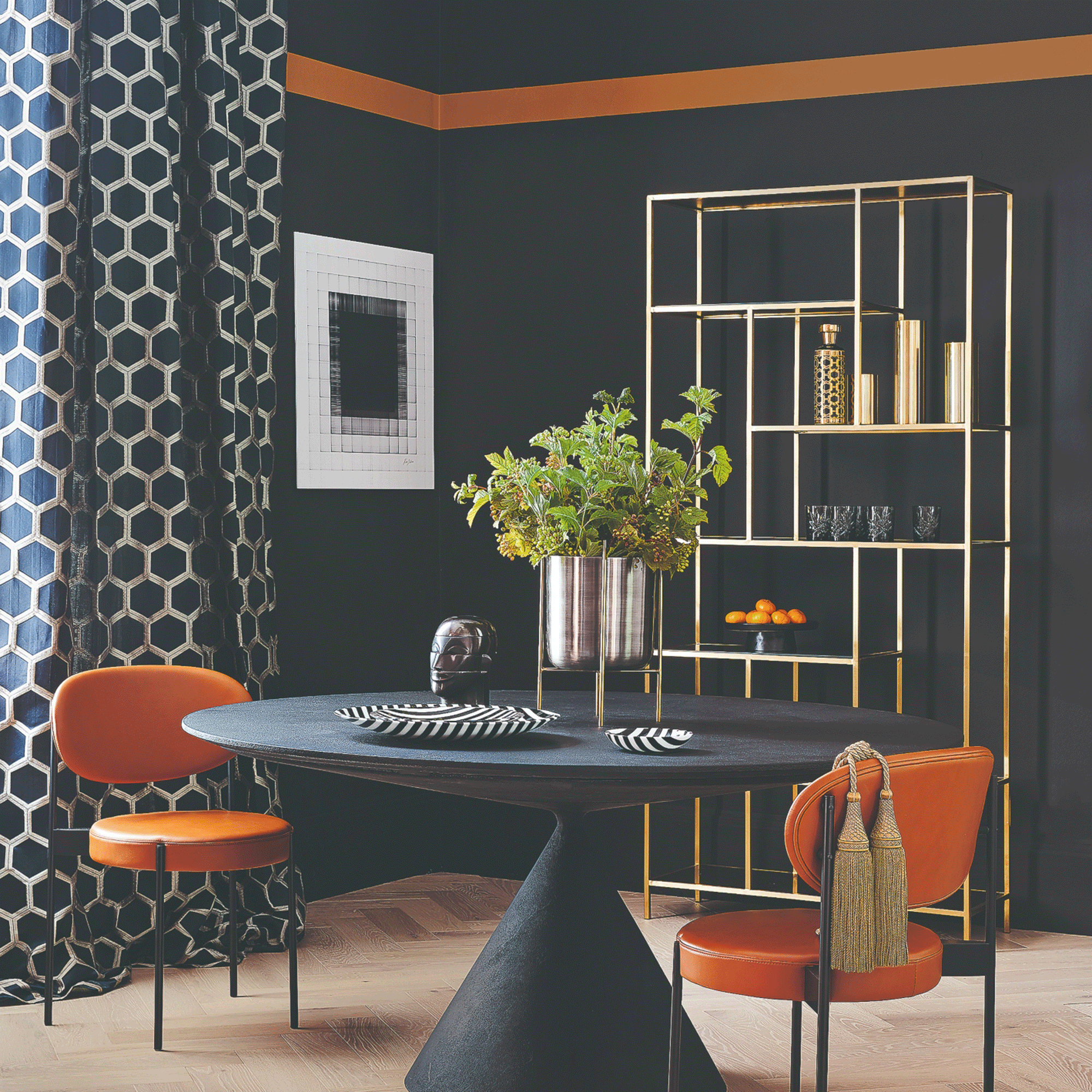
It makes sense that thicker window treatments, whether that's blackout curtains or insulated window blinds, will help to keep out noise as well as the cold.
'I always advise adding thermal bumps in any of your custom-made blinds or curtains,' says interior designer Cathy. 'As well as keeping the chills out from drafty windows, it also deadens sound.'
You could also draught-proof a window to keep out noises. 'Weatherstripping is typically used to block draughts and cold air, but it can also be used to block sound – you’d be surprised at just how much sound comes through small gaps,' advises insulation expert Johnpaul.
'Weatherstripping tape (like this one from Amazon) where the windows and doors touch the frame can really make a big difference.'
'Think of your room like a recording studio where any hard surface can bounce sound, so incorporating soft furnishings is key,' explains Louisa Swannell from Walls and Floors.
'Layer rugs on wooden floors, add thick curtains or even wall-hung textile art. In a bedroom, upholstered headboards or bookshelves packed with fabric-covered books can also help soften sound.'
'Sound also travels surprisingly easily through the smallest gaps, for example, around door frames, plug sockets, and skirting boards. Using acoustic sealant (like Bond It from Amazon) or rubber draft excluders can be a cost-effective fix that reduces sound leakage significantly,' she adds.
7. Add felt backing to pictures and furniture
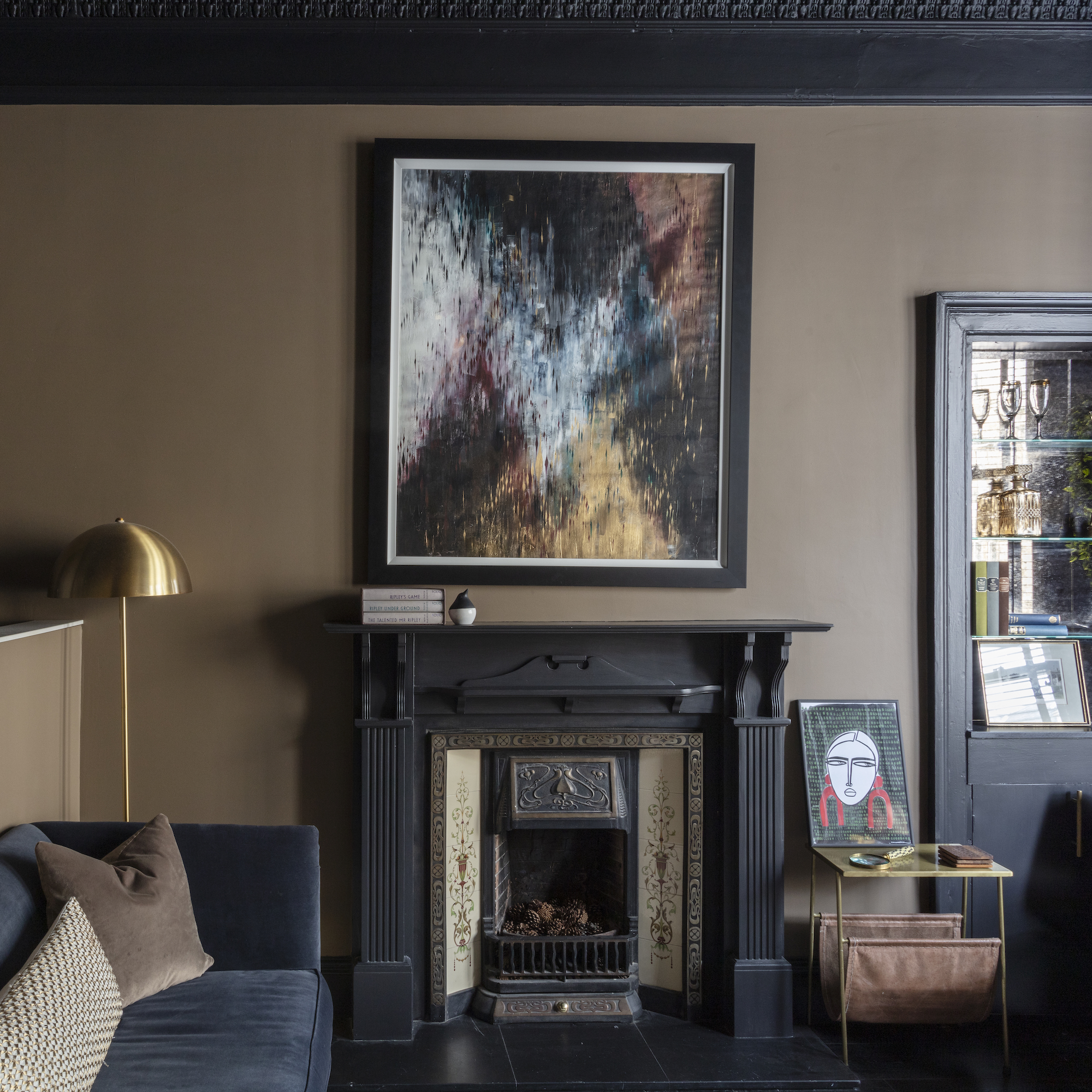
If, even with the addition of extra soft furnishings, you are still finding your home feels like an echo chamber, then use this trick from interior designer Cathy.
'Get some cheap felt (you can pick up some white or neutral shades at Amazon) and attach it to the back of all of your pictures and mirrors – it's incredible the impact it will have, and it is totally invisible,' she says. 'You can even add it to the underside of tables and chairs, too.'
8. Upgrade your windows
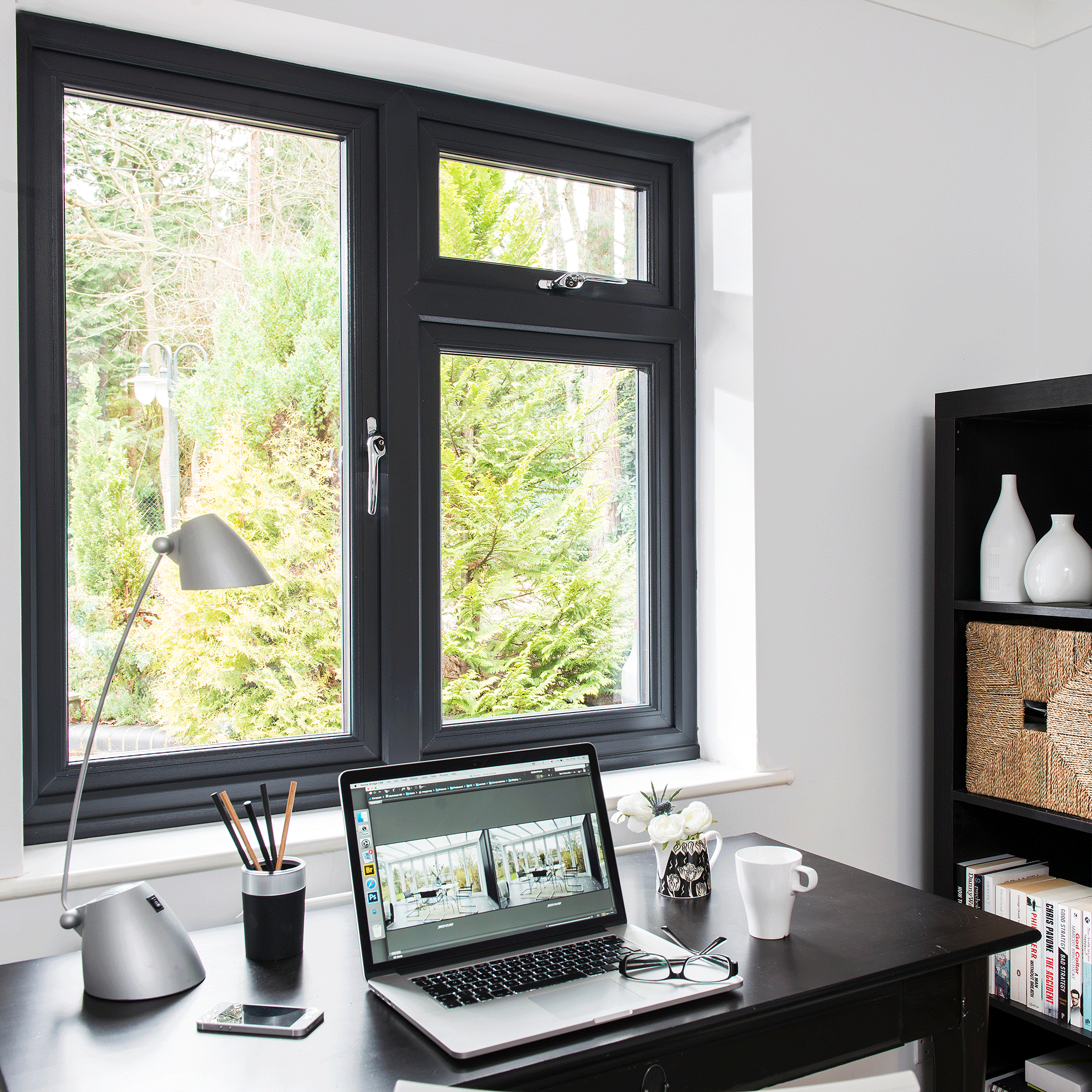
If sound from noisy neighbours and other sources is a really big problem for you, or if you're planning to upgrade your windows anyway, then investing in double or triple glazing will have a significant impact on the amount of sound entering your home.
'Windows are the source of most noise travelling through,' explains insulation expert Johnpaul. 'Many homes have single-pane windows which might be installed on a wooden frame. These are not good when it comes to offering noise insulation.'
'Windows with an acrylic frame will help keep the noise at bay. Double or triple-paned windows typically have an STC rating between 28 to 35, reducing the sound entering your home by almost by 20 per cent. Add acrylic frames and the sound reduction capability goes up to 50 per cent.'
9. Lay acoustic flooring
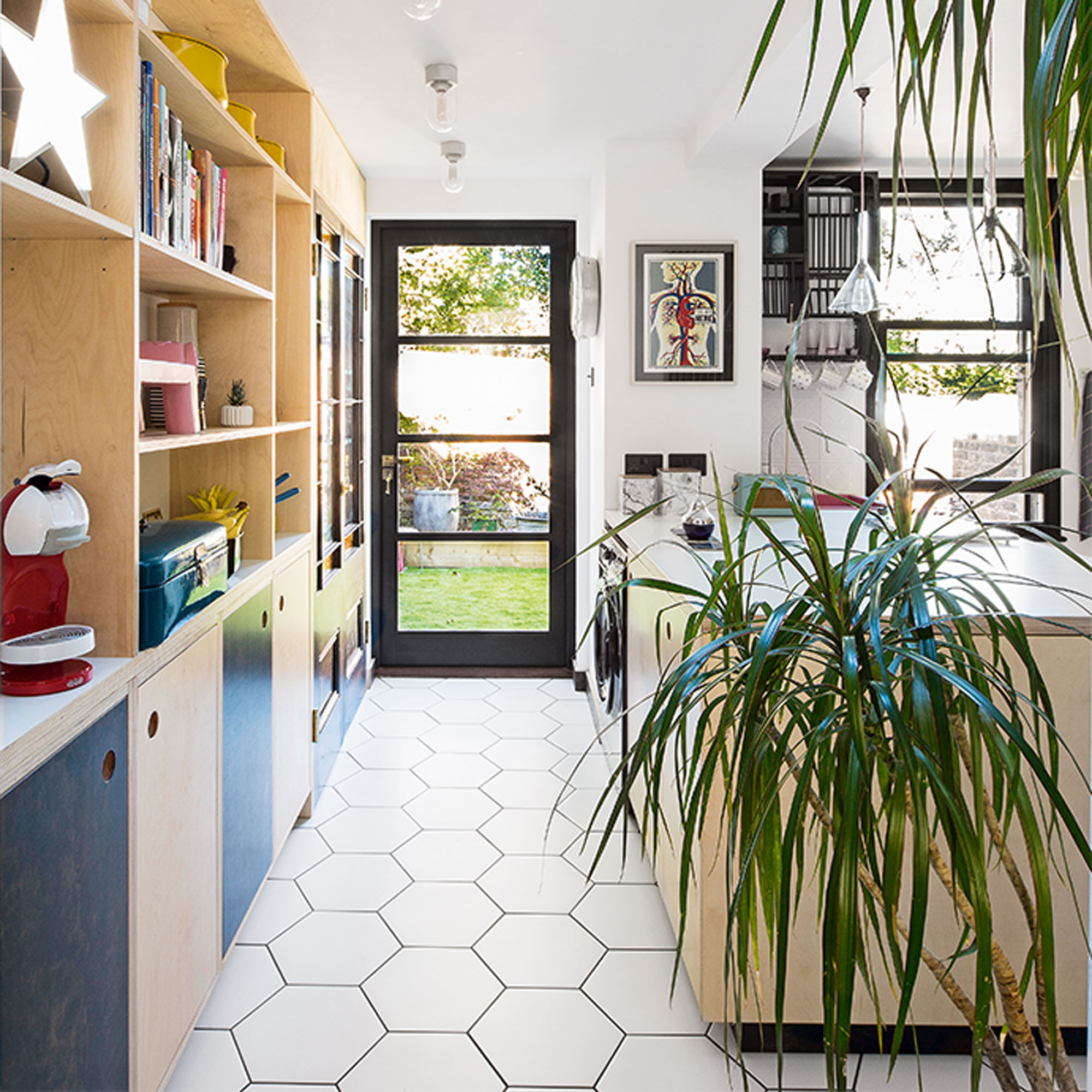
Another clever soundproofing idea is to change your bedroom flooring idea to a style of acoustic flooring, if the noise is actually coming from downstairs and not next door.
Paul Hambidge, Managing Director at Factory Direct Flooring says, 'Acoustic vinyl flooring can significantly reduce walking noise thanks to its thickness.'
'Despite being a hard floor type, LVT is also one of the best for cushioning sound, especially when paired with the right underlay.'
'Laminate can be noisier by comparison. If you already have laminate and want to reduce noise, I'd suggest laying a rug on high traffic areas to soften the impact. But if you've not laid your floor yet, use insulated foam sheets as underlay, and invest in thicker laminate planks if you can.'
FAQs
How do you soundproof a room that is already built?
We asked a number of experts for their advice on how to soundproof a room that has already been built.
'If the room is already constructed, the best approach is to introduce furniture and install acoustic panels on the walls and ceiling,' suggests Laura Supple from AJ Products.
'These panels come in various modern designs, including painted surfaces, cylindrical hanging panels, and even live plant acoustic wall panels that combine functionality with aesthetics. Additionally, installing acoustic corner traps between the ceiling and walls can further enhance noise reduction. Mobile acoustic screens, commonly used in offices and schools, are another flexible option for improving acoustics in a pre-built space.'
'Hang paintings or canvas art backed with acoustic foam to add style and function,' adds Gareth Davies, Design Director, Classic Interiors. 'Multiple rugs or mats on floors can greatly reduce sound transfer. In the long-term, using acoustic adhesive between walls during renovations is an unseen yet highly efficient solution.'
How to block noise from a shared wall?
It's essential to address noise from shared walls promptly, as it affects your peace. Gareth Davies, Design Director at Classic Interiors shares his thoughts on how to block noise from one.
'My go-to solution is mass-loaded vinyl; it’s dense yet flexible and excellent at dampening sound. Combining this with acoustic sealant to seal gaps can create a quieter environment.'
'For a shared wall, the most effective solution is to increase its thickness by adding wall-mounted acoustic panels,' adds Laura Supple from AJ Products. 'These panels absorb sound waves and minimise noise transmission from the other side. For the best results, installing panels on both sides of the wall can significantly improve noise reduction.'
So, there you have it: how to soundproof a room effectively.
Now that you've sorted out the house, the next step is soundproofing your garden so the buzz of garden tools will be a distant memory, and you can finally restore peace in your outdoor haven.

Andrea began her journalism career at Ideal Home and is currently Editor of our sister title, Country Homes & Interiors, which celebrates modern country style. Andrea is passionate about colour and how it can transform both our homes and our sense of wellbeing, and has completed The Power of Colour course with the prestigious KLC School of Design. Andrea's career spans interiors magazines, women's lifestyle titles and newspapers. After her first job at Ideal Home, she moved on to women's magazines, Options and Frank. From there it was on to the launch of Red magazine, where she stayed for 10 years and became Assistant Editor. She then shifted into freelancing, and spent 14 years writing for everyone from The Telegraph to The Sunday Times, Livingetc, Stylist and Woman & Home. She was then offered the job as Editor of Country Homes & Interiors, and now combines that role with writing for idealhome.co.uk.
- Jenny McFarlaneSenior Digital Editor